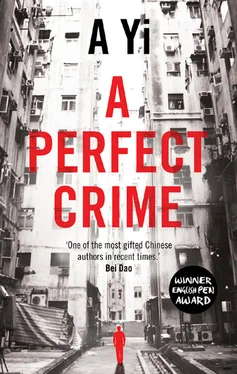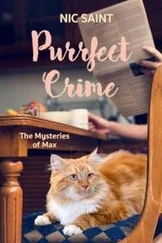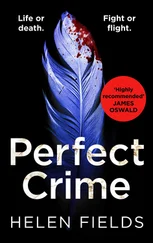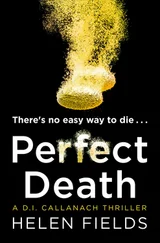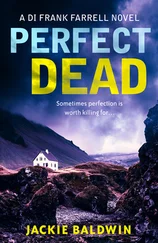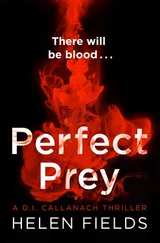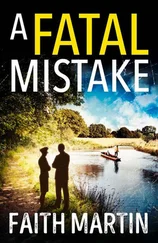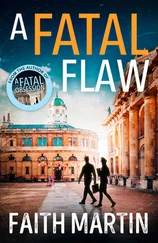My lawyer then repeated his three-pronged argument about how I had willingly given myself up. This the prosecutor could not accept, because I had yet to express even a hint of remorse. The lawyer narrowed his eyes at me as if to say, I’m not doing this alone, kid. But the last thing I wanted to do was make such a performance in court.
‘You feel no remorse, isn’t that correct?’ the prosecutor said.
The question was there to help me, but I just cocked my head. I didn’t say yes, I didn’t say no. I wanted to say yes.
‘Why did you go looking for the police officer?’ my lawyer asked.
My head was still cocked. The judge reminded me I was required to answer. I thought for a long time and then decided I’d better tell the truth.
‘Because I came to the conclusion that they were so lousy they wouldn’t catch me otherwise.’
My lawyer looked betrayed and flustered. He walked past me in the dock, thumped on the table and filed an application for a psychological examination.
He then produced a medical report stamped by the A—Province People’s Hospital supposedly written five years previously. He began reading out loud the diagnosis: hysteria and neurosis mainly, peppered with quotations from seminal works of psychology for reinforcement. He expounded on the necessary nature of such expert testimony, arguing that the court’s own examinations were inadequate, and that this medical certificate was in full accordance with the principles of objectivity as required by the judicial system. He then took out another paper, in which two professors of law had written in support of this appraisal. And he quoted: ‘Our justice system should treat cases such as these as iron-clad. It is too late to conduct a medical appraisal after the death sentence has been carried out.’
The prosecutor laughed coldly. He dragged a comb through his already neat hair, guiding it with his other hand for protection. This was a standard tactic used by the defence. He then pointed at me and spoke to the rest of the room.
‘Does he show any signs of mental illness?’ He then turned to me. ‘Are you sick?’
‘Of course not.’ I could sense the shock in the room.
‘How do you know?’ my lawyer growled, standing up.
‘Shouldn’t I know best?’
‘That’s what every mentally ill person says. That’s the best proof, right there.’
His veins were popping as he thumped at the table. Laughter erupted in the public gallery.
‘So do you need an appraisal or not?’ the judge asked.
‘No,’ I said.
My lawyer threw his briefcase onto the table and looked as if he was about to storm out. Only a sense of his own self-importance stopped him and he asked for Kong Jie’s mother to be brought in. He then looked across at me like a man who was about to die making his last desperate plea to be saved. I, however, had long wanted an end to this game. The person in the courtroom on trial wasn’t me, but a machine designed to validate my lies.
Mrs Kong was wearing the same black ankle-length dress, but this time she had added a long blue scarf. Kong Jie’s scarf. Holding back her tears, she read out a document apparently entitled An Act of Mercy from One Mother to Another. Everyone in the court wore grave expressions, listening without moving. Her performance that day was pretty good; her tone, the balance between emotion and restraint, it was all exquisite. My lawyer must have written the script for her, but somehow it must also have touched a nerve (it was so unlike her wild shouting of before). My lawyer was like a songwriter watching the performance from his position in the audience as he seemed to tap his finger in time. People wiped tears from their eyes.
But I had to stop her. ‘This is a financial transaction.’ I watched as the paper floated from her hand like a white crane. Her thin, solemn frame began to tremble. She closed her eyes, opened them, and then fell backwards. People rushed to help. Saliva frothed around her mouth and her body twitched as if she was having an epileptic fit. The court was filled with noise like school breaking for the day: people fidgeted, talked, anxious and unsure of what to do. Then it hit them. Together:
Kill him!
Kill him! Kill him!
Kill him! Kill him! Kill him!
I looked up at the ceiling and then out at the courtroom. It was small, like a theatre box. People far in the distance were waving their fists and all that was left were the yellow seats and dark green banisters. On the wall to the side was fastened a Western-style lamp which was on but gave out only the weakest light. No one thought to switch it off. There will come a day, when everyone has gone, when all that is left is the dancing dust.
‘Kill me,’ I said, returning to reality.
My eyes showed I was sincere. My lawyer had stuffed his papers into his briefcase and taken his place as a spectator. The public prosecutor was stunned; his body shook. Eventually he began reading from a report, his voice almost singing. What I heard was ‘vicious in the extreme’, ‘utterly devoid of conscience’, ‘total disregard for the law and human life’, ‘ruthless methods’, ‘serious consequences’, ‘grave danger to society’, ‘public indignation if we don’t hand down the death sentence’.
The courtroom exploded in applause as he finished and continued for some time before stopping abruptly. They felt the amorphous loneliness just as I did.
The judge asked for my response.
‘I want to tell the public prosecutor that I actually passed him in the street the day I bought the switchblade. And I thought about killing him. But my plans were already fixed.’
Confused, he looked down.
Just then a lion-like roar broke through the silence. ‘Why did you kill my daughter and not someone else!’ ‘I had to kill someone.’
‘You could have killed a corrupt official or a thug. Why did you have to kill my daughter?’
‘Because she was worth it.’
‘What do you mean by that?’ the judge said. ‘Because she was beautiful, kind, clever. She had a future, but she had a difficult childhood, lost her father young. She’s your sweetheart, all of you.’
‘You animal!’ the public prosecutor cried.
‘So you did it out of hate?’ the judge continued. ‘No, I did it for a reaction. I’ve read the newspapers, magazines. I know how much attention a vicious murder case gets. Especially if the victim is a child, student or young woman. Even ugly girls become precious beauties, kind and loved, if they are murdered. If plain girls get that treatment, reactions to the death of a girl like Kong Jie, who was pretty much perfect, would be more exaggerated. Then I worried the story wouldn’t be big enough, so I stabbed her thirty-seven times. I planned it all carefully. She trusted others easily, was a good girl. You guys, you all live with these supposed lofty ideals. A pretty vase like her gets smashed? I knew you’d be rushing to express unparalleled anger and emotion. You would agonise over the fact that you couldn’t do to me what I did to her. That you couldn’t dismember me.’
‘You killed her to become famous?’ the public prosecutor asked.
‘No, I just wanted to make sure I handed you enough motivation to come and catch me. I killed someone you couldn’t tolerate to be killed so that you would put all your energy and resources into hunting me down. Get everyone involved. But you couldn’t do it.You got lazy. So I gave myself up to the police.’
‘You murdered her so that you could go on the run?’ the judge asked.
‘Yes. Running away is the only way to feel alive. You’re the cats, I’m the mouse. Mice are clever, strong; they are streamlined, carry no extra weight. They are almost mathematical in their beauty. I’ve been longing to feel such nervous energy, such pressure.’
Читать дальше
